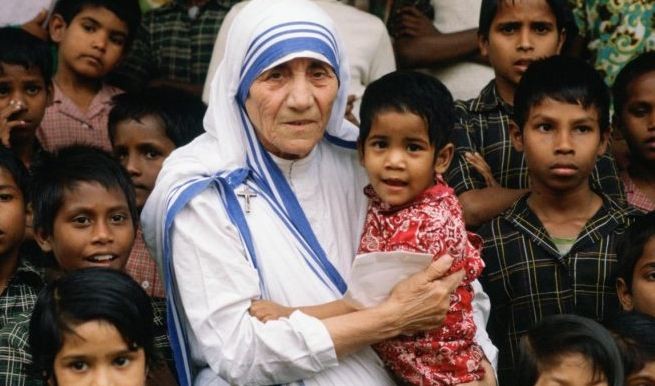Mother Teresa, the beloved Roman Catholic nun that placed her life in the service of India's poor but who privately confessed she no longer believed in the existence of God, will become St. Teresa of Calcutta on Sept. 4, Sunday.
Pope Francis will lead an open-air Mass at St. Peter's Square in the Vatican during which he will be asked three times in Latin to add Mother Teresa to pantheon of Catholic saints. The Pope will then canonize Blessed Teresa of Calcutta, who becomes St. Teresa of Calcutta.
The canonization of Mother Teresa is one of the highlights of Pope Francis' Jubilee of Mercy, a Catholic festival running until Nov. 20
St. Teresa will be the 29th saint canonized by Pope Francis since 2013. The last saint canonized by the Pose was Maria Elizabeth Hesselblad last June 5.
Canonization is the act by which the Roman Catholic Church declares a person who has died is a saint. The act of canonization is reserved to the Holy See and occurs at the conclusion of a long process requiring extensive proof that the person proposed for canonization lived and died in such an exemplary and holy way that he or she is worthy to be recognized as a saint.
Born Anjezë Gonxhe Bojaxhiu on Aug. 26, 1910 in Skopje, now part of the Republic of Macedonia, St. Teresa, first came to India in 1929 and founded the Missionaries of Charity in 1950.
An ethnic Albanian, she gained worldwide recognition for her work assisting India's many poor and sick and received the Nobel Peace Prize in 1979. She died on Sept. 5, 1997.
Despite spending her life in India's slums caring for the poor along with the sisters in the order she founded, Mother Teresa was tormented by the realization she no longer believed in the Catholic God.
Her private letters published after her death in 1997 revealed she had endured this torment for the last 50 years of her life during which "she felt no presence of God whatsoever," "neither in her heart nor in the Eucharist."
She also expressed grave doubts about God's existence, and pain over her lack of faith in him. In a wrenching admission she wrote:
"Where is my faith? Even deep down ... there is nothing but emptiness and darkness ... If there be God -- please forgive me. When I try to raise my thoughts to Heaven, there is such convicting emptiness that those very thoughts return like sharp knives and hurt my very soul."
Catholic apologists, however, contend this "spiritual dryness" or spiritual tests were experienced by other Catholic saints and in no way is an impediment to canonization.



























